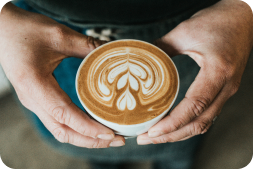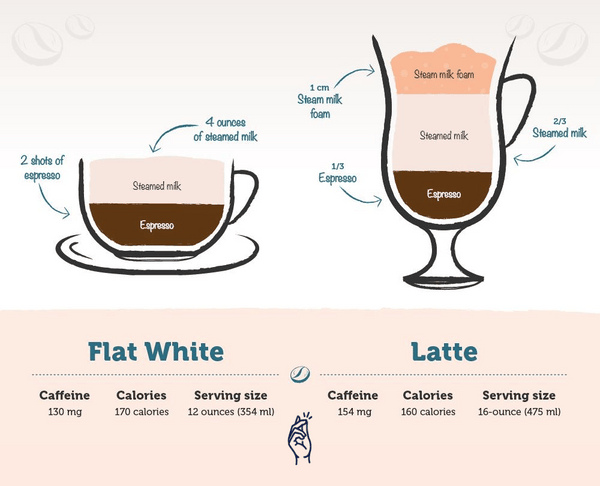Coffee is more than a caffeine jolt: the taste, the aroma, the subtle blend of sweet and bitter flavours. Coffee is a passion. That’s why it’s so disappointing when you brew up a cup only to find that it tastes… well, off!
At some point, every coffee lover has experienced a bad cup: whether the beans were burnt, the roasting was poor, or it was just too strong. Yet, that’s a long way from off coffee.
But can coffee even go off? And if so, how long does it last?
Does coffee go bad?
First up: coffee will not go bad, at least not in the same way as most foods. Don’t expect to open your coffee bag or jar to find beans infested with mould. The only time coffee will grow mould is if you leave a brewed pot of coffee out for long enough (word to the wise: don’t).
So, what do we mean when we say coffee is off?
Well, over time, coffee will gradually lose its natural flavour. That’s because the chemicals and compounds responsible for those rich and delicious notes become oxidised in the air. Whether two days, four weeks or six months, your coffee is slowly losing the intensity of its flavour. There’s no definitive cut-off date, however.
You can still drink these beans. They won’t make you ill, even long after the expiry date. But expect a bland brew lacking in robust flavours.
How long will coffee last?
That depends.
Critical factors include preparation, storage condition, location, and whether it’s opened or unopened. Below we’ll break down the shelf life for the various types of coffee.
Coffee beans
Unlike most foodstuffs, coffee beans never go bad. The flavour won’t last forever: around six to nine months in a pantry or cupboard. Once opened, however, fresh beans won’t last six months.
Did you know: coffee can be frozen to increase its shelf life. In the freezer, beans will last between two to three years.
That is until they’ve been roasted.
Generally speaking, the closer to the roast date, the fresher the coffee. However, it is important to note that the aroma and balance of flavour does not settle until around a week after the roast date. This means, freshly roasted coffee can vary in taste quite a lot. For Presto beans, we recommend that for optimum taste, our blends should be consumed around 7 - 30 days after roasting.
From that moment, it’s a downhill slide. Day by day, the flavour declines. That’s why coffee grown around the world is roasted nearest the customer. So, the aromatic notes aren’t lost during shipping. Try a freshly roasted batch of beans, and you’ll experience a brew like no other.
The loss of freshness is due to degassing: a process in which the beans release unwanted carbon dioxide. Ever noticed the small valve in coffee bags: it lets carbon dioxide leave while preventing oxygen and moisture from entering.
Grind the coffee beans, and it’ll instantly smell richer and more intense; for the same reason, it won’t last as long. All the delicious flavours we associate with coffee come from the delicate mix of oils stored in every coffee bean. Roasting brings these oils out and grinding the beans exposes more surface area to the air, increasing oil oxidation.
If left unopened, a bag of ground coffee can keep for 3 to 5 months forgotten in a cupboard. However, it can also be frozen, lengthening the shelf life to 1 to 2 years.
Once you’ve opened the bag, you have as little as two weeks to enjoy the flavour before it appreciably deteriorates. Although, opened ground coffee can last up to a few months.
Instant coffee
Having been specially treated and processed, instant coffee lasts up to twenty years. Even once opened, the coffee can still be good for a similar length of time. Most containers are made of glass or aluminium, ideal for keeping out moisture and heat. That means a longer shelf-life and no mould.
Even so, if you’ve opened a tub, we advise using it up within 18 months, depending on your storage method.
Factors that affect coffee quality
Four simple factors affect the shelf life of coffee, and ultimately, the quality of every cup.
- Humidity: Moisture is the friend of mould. But it also speeds up the oxidation process, sapping the coffee flavour. When storing, keep coffee in a cool and dry location. Using zip lock bags or sealable plastic containers also helps reduce humidity.
- Light: Direct sunlight speeds up the oxidation process by providing heat. It also affects any growing microorganisms. Avoid glass jars of coffee or store the jar in a dark location.
- Heat: Oxidation is a chemical reaction: heat speeds up reactions. Therefore, more heat means less flavour. The exception is roasted Whole Bean Coffee, which hold up to heat much better.
- Oxygen: Oxygen is a critical ingredient in oxidation. When left in the open air, coffee will go stale in a matter of days. Try to reduce coffee’s contact with the air by using sealable containers.
Top tips for storing coffee:
- If you’re storing coffee in the freezer, be careful what you store it with. Unknown to most: coffee has tiny, microscopic pores that will absorb the odours of other foods, dulling the coffee aroma. Don’t freeze your coffee only to find it tastes like fish fingers. Yuck!
- Looking for a coffee storage container guaranteed to keep coffee fresh: check out the top-quality airtight coffee containers available online.
- Keep opened coffee bags out of sunlight: the back of a cupboard in an airtight container is perfect. When resealing the bag, give it a little squeeze to remove any excess air.
- Grind the beans yourself. It’ll extend the shelf-life and improve the taste of every cup! Plus, you can pick up a grinder relatively cheaply.
- Fun ideas for old coffee: make a delicious Tiramisu or sprinkle with cocoa powder on your favourite desserts for a rich choco-mocha delight.
- Don’t reheat brewed coffee. Once made, consume within the hour or store in a thermos.
There is a simple solution to coffee’s shelf life: Buy less or drink more. Don’t buy coffee in bulk only to fret that it will go off before you drink it. Instead, buy little and often. And sip your coffee as it’s meant to be enjoyed – fresh, creamy and with a crunchy biscotti.




